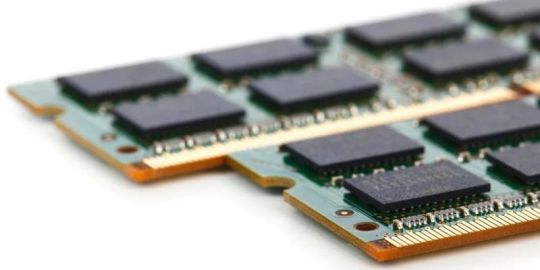Don't wanna be here? Send us removal request.
Text
Upgrading Your Computer's Memory: A 4-Year Journey in Laptop, Desktop, and Motherboard Memory
In today's fast-paced digital world, computers play an essential role in our daily lives. Whether you're a professional, a student, or a casual user, the performance of your computer greatly depends on its memory. Over the past four years, I've gained valuable experience in upgrading and replacing memory in various computer systems, including laptops, desktop PCs, and motherboards. In this article, I'll share insights and tips to help you enhance your computing experience.

Laptop Notebook Memory:
Laptops are known for their portability, but they often come with limited memory. Upgrading laptop memory can significantly boost performance. When choosing a laptop memory module, consider compatibility with your laptop's model and the operating system. DDR4 and DDR3L are common memory types, but ensure that you choose the right one.
Desktop PC Computer Memory:
Desktop PCs offer more flexibility for memory upgrades. Adding or replacing memory modules in a desktop is relatively straightforward. When upgrading desktop memory, focus on the type of RAM (DDR3, DDR4, etc.) and the memory speed. Faster memory can enhance multitasking and gaming performance.
Motherboard Memory:
Motherboard memory, also known as BIOS or CMOS memory, is vital for storing system settings and configurations. In some cases, you may need to replace a motherboard's memory component if it's causing issues. Ensure you're cautious when handling the motherboard and consult the manufacturer's guidelines to avoid any mishaps.
Dell Laptop Memory:
Dell laptops are popular for their quality and reliability. Upgrading memory in a Dell laptop can be a game-changer, making your laptop faster and more responsive. Always check for compatibility with your specific Dell laptop model to ensure the memory module fits perfectly.
Replacing and Upgrading Memory:
Upgrading memory is a cost-effective way to extend the life of your computer. Before starting, back up your data to prevent any potential data loss. Consult your computer's manual or the manufacturer's website for instructions on how to replace or upgrade memory. Make sure you have the necessary tools and components.
In conclusion, upgrading and replacing memory in your computer can transform your computing experience. My four years of experience in this field have taught me the importance of compatibility, research, and careful handling of computer components. With the right memory upgrade, your laptop, desktop, or motherboard can become faster and more efficient, ensuring that your computer keeps up with the demands of today's digital world.
2 notes
·
View notes